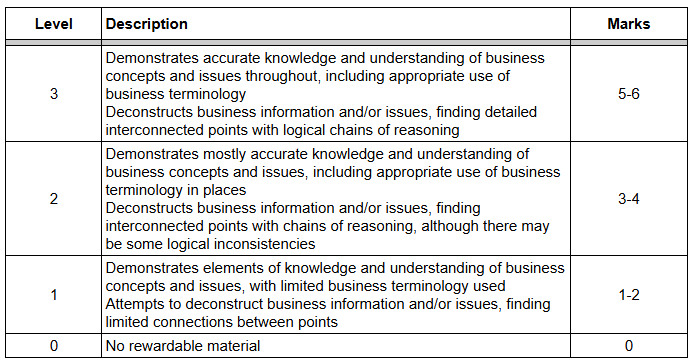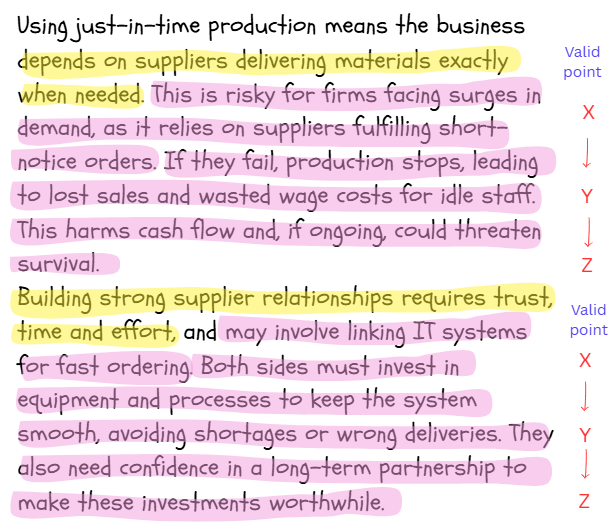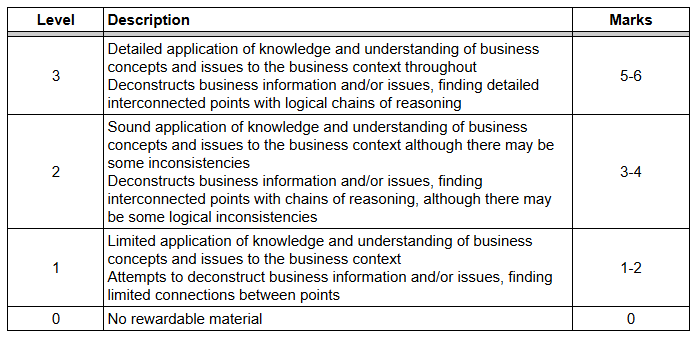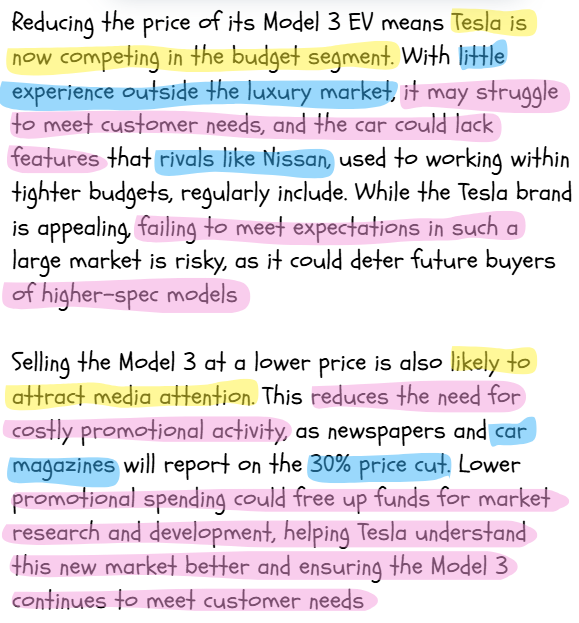Answering 6-Mark Questions (Edexcel GCSE Business): Revision Note
Exam code: 1BS0
How do I answer an Edexcel GCSE Business 6-mark question?
Discuss questions
In these questions, you are required to make valid points and develop chains of analysis
Try to develop an 'X leads to Y and the outcome is Z' chain'
Application to the case study is not required
The level of response marking grid
6-mark discuss responses are assessed using a marking grid
A mark is determined by considering how well, overall, the response demonstrates the skills of knowledge and analysis
The examiner uses the grid to find the best fit for the response

Example
Discuss the disadvantage to a business of using a just in time (JIT) system of stock control. |
|---|
  |
Analyse questions
You are required to make valid points and use the case study evidence and develop arguments in your answer
A decision or conclusion is not required
The level of response marking grid
6-mark analyse responses are assessed using a marking grid
A mark is determined by considering how well, overall, the response demonstrate the skills of knowledge, application and analysis
The examiner uses the grid to find the best fit for the response

Example
Tesla is a public limited company based in California, USA. Its founder and main shareholder, Elon Musk, wanted to produce an electric car that is affordable to a large number of potential customers. This car is called the Tesla Model 3. Introduced in 2017, the basic version of the Model 3 was originally priced at $50,000 and the company wanted to reduce this price to $35,000 by 2019. However, this was difficult to achieve because Tesla’s California factory suffered from low levels of productivity. These problems resulted in Tesla making a $976 million loss in 2018 Following the introduction of tariffs on US imports by the Chinese government in 2018, Tesla decided to invest $5 billion in the construction of a new car factory in Shanghai, China. This factory will use flow production. However, with only $2.4 billion of available capital, Tesla needs to raise external finance to fund it. In 2019, Tesla decided to close most of its showrooms to reduce costs. The company believes customers will be happy to purchase electric cars using e-commerce. Analyse the impact on Tesla of lowering the price of its Model 3 electric vehicle (EV). |
|---|
  |

Unlock more, it's free!
Was this revision note helpful?
